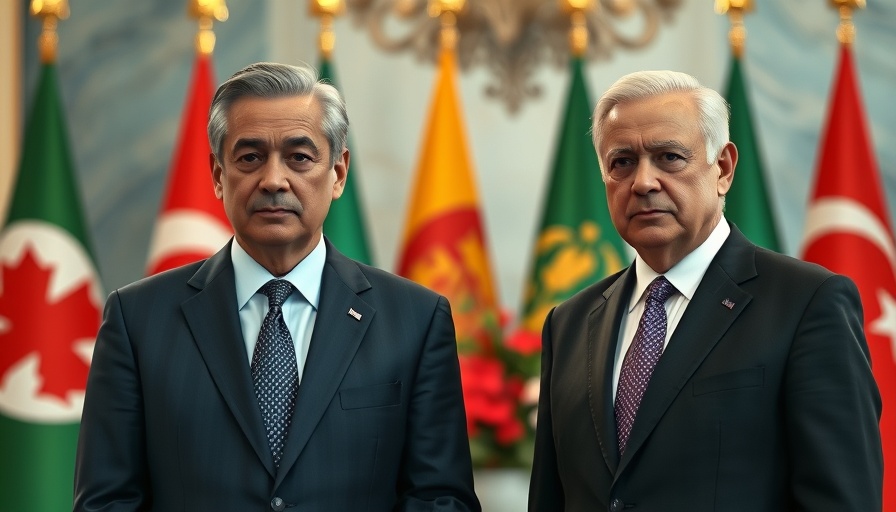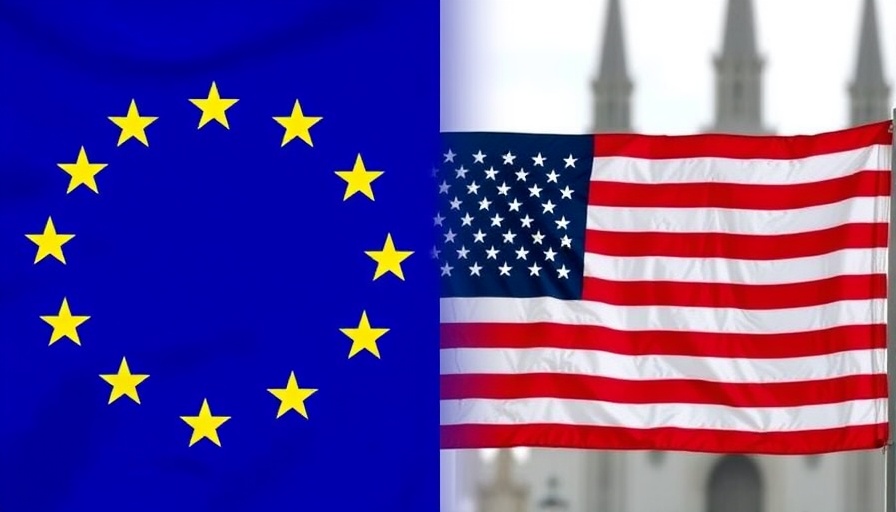
A New Chapter in U.S.-North Korea Relations: Understanding the Message
As Donald Trump steps back into the political limelight, the world turns its attention to North Korea, a nation that has once again made headlines with its response to his potential return to the presidency. Branded as 'Rocket Man' by Trump during their bombastic exchanges, North Korea’s reaction serves not only as a historical referral to their tumultuous relationship but also as a reinforcement of the ongoing geopolitical narratives that continue to shape national and foreign policy decisions.
Context: The History of U.S.-North Korea Relations
The relationship between the United States and North Korea has been profoundly influenced by the personal dynamics between key leaders. Trump's presidency was marked by unprecedented summits with Kim Jong-un, an engagement that aimed to negotiate denuclearization while highlighting the contrasting political ideologies of a democratic nation versus a dictatorial regime. As Trump hints at a second presidential bid, the North Korean government is keenly aware of the implications for their security stance, showcasing its ability to influence American electoral politics.
Why North Korea's Silence Was Broken
The North Korean government's decision to respond also reflects its strategic calculations regarding the influence of the U.S. on its own domestic policies and legitimacy. By acknowledging Trump's return, they not only remind the international community of their military capabilities but also seek to portray their regime as one that can withstand pressure from established powers. The broken silence indicates a readiness to reset narratives and spark dialogue, whether it be through threats or diplomacy.
Global Reactions: The Broader Political Impact
As North Korea's message reverberates across the globe, it prompts differing views among American political factions. Democrats may perceive the renewed tension as a return to a politics of confrontation, whereas Republicans might view it as an opportunity to reinforce their narrative of national strength and foreign policy competence. Understanding this juxtaposition is essential for professionals working in government affairs and international relations, as missteps could lead to heightened tensions with significant ramifications across economic, military, and humanitarian fronts.
Domestic Implications: What Does This Mean for Policy?
Should Trump regain the presidency, the implications could extend beyond mere rhetoric. An examination of policy preferences during his first term reveals possible avenues of reevaluation regarding sanctions, military presence in South Korea, and diplomatic engagement approaches. With increasing geopolitical complexities, the incoming administration—be it Trump or another candidate—will have to navigate a delicate signal exchange that respects longstanding treaties while addressing new security challenges.
Future Predictions: Will History Repeat Itself?
Looking ahead, experts speculate about the potential for a shift in U.S. policy regarding North Korea. While Trump's unconventional methods might suggest a return to aggressive strategies, alternately, there is a possibility for diplomatic talks reminiscent of the 2018 summits. The path forward is fraught with uncertainty, influenced not just by the promises of domestic parties but also by international allies and adversaries weighing in on peace negotiations. Understanding public sentiment on these matters—especially among swing state voters concerned about national security—will be crucial.
Conclusion: The Stakes for Democracy and International Stability
For professionals in the field, keeping abreast of developments in U.S.-North Korea relations is not merely academic; it reflects broader themes in democracy, executive power, and international stability. As Trump navigates a potential campaign trail replete with challenges, the reactions from North Korea could dictate the contours of debate in upcoming elections and influence legislative priorities in Congress. Remaining informed allows one to engage critically with the implications of governance decisions today that will shape economic, social, and military landscapes tomorrow.
 Add Row
Add Row  Add
Add 




Write A Comment